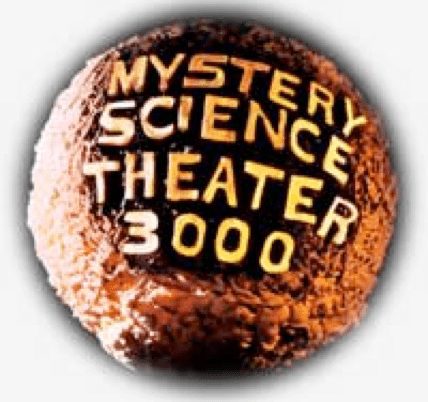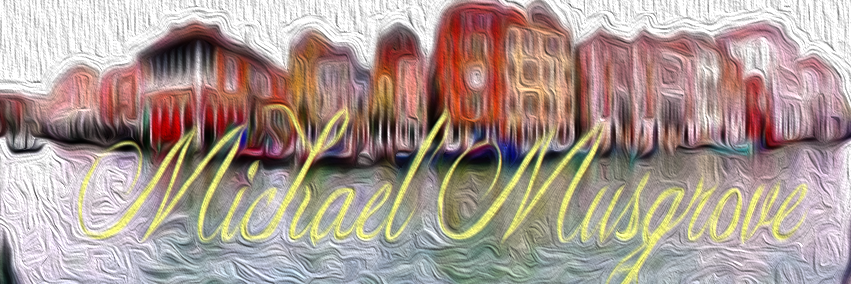 This area of my life is where a lot of nerdom resides. At least I recognize it as such, which is the first step in getting help if I ever want it. I like Mystery Science Theater 3000 and the offspring like RiffTrax and Cinematic Titanic. The lead writer, Mike Nelson, and I share a lot of similarities, in our appreciation of English, music, and sarcasm.
This area of my life is where a lot of nerdom resides. At least I recognize it as such, which is the first step in getting help if I ever want it. I like Mystery Science Theater 3000 and the offspring like RiffTrax and Cinematic Titanic. The lead writer, Mike Nelson, and I share a lot of similarities, in our appreciation of English, music, and sarcasm.
The lead guy who was the brainchild behind it, Joel Hodgson, is the defacto captain of the ship, and as creative and wry as a mind he has, it doesn’t always shake hands with reality. When they began the series, it was a skeleton crew, with Trace Beulieieu as an art director, writer, on-camera personae, and more. He had a significant influence on the show, and he is one of the reasons I like it so much. He’s a prodigy and a comedic powerhouse.
The concept and show have always been eccentric and malformed for pure numbers-driven type entertainment as we have today. There are a lot of variables that have to add up to make a good episode. And they managed to do it a lot. Not always, but many times. And Netflix was willing to hand them a big budget and see what they could do.
They blew it, which I thought they would. The casting was poor. The idea was weak and overwrought with skeleton/motorcycle-helmeted musicians and a poor attempt at trying to keep the campiness there when it wasn’t. The credits at the end went from a handful of the same overworked people to Hollywood sized roles that made no sense. I mean, how many people do you need to rag on bad movies? A few competent writers and puppeteers and not much else, as it was shown. It wasn’t the big corporate giant hiring actors to make fun of the amateur or bad movie makers, it was the feebler everyday type guy ragging on some obviously campy and funny bad movies that made the jokes stand up.
The new guys that riffed on the shows had voices that you couldn’t tell apart when in the theatre. And the comments weren’t edgy. They were too safe. It’s like the PC crowd got their hands on it. And having a giant budget should have allowed them to obtain rights to some riff-worthy classics, not jazzing up the set or costumes or animation or all the rest of the superficial stuff that is secondary to the reason the show was great originally.
They joked tongue in cheek that they were going to blow up the brand and sell it to Disney for a Billion dollars. But that came across to me as more than a wink-wink type joke. Like when American Dad asked within an episode to be syndicated. It was really what their plan seemed to be, and so they set off on what they thought would take them there. And missed the target.
Patton Oswalt isn’t funny by himself. He’s funny when someone else points out what a loser he is. In front of the camera and real life. He’s a jerk. And trying to have a PC cast with a young female as the antagonist is weak. Instead of using quirky references from times and films long ago that appeal to the intellectual fanbase, they tried to appeal to the mainstream and employ rap songs in their skits, “as the young kids like,” and the original series would have made fun of.
I’m writing about this here, safely away from the Facebook groups and fan sites that collect the hardcore fans that believe the people working on MST3K are infallible. I’m a member of a lot of those sites as a sideline observer, and if you dare pose an opinion that casts doubt upon any of the producers and cast and caterers over at craft services at any of the shows, you’ll be swarmed on like flies at a ribroast. Banished! Exiled! Hate speech! Which is what the direction of MST3K is taking. The California inclusivity mindset, where comedy no longer relies on humor to be funny. What matters is how everyone feels afterward, and that should be safe and secure in every possible way.
The concept of what MST3K has is great. But they’re trying to alter it to fit target markets when they’re getting their marketing backward. They need to realize which demographics appreciate and will sustain it financially and market to them, instead of trying to make the product appeal to the target market they want. That doesn’t work, as we’re seeing. That’s why Netflix told them thanks, but no thanks, even though it’s a powerful concept they have in their hands. They could turn it into a billion-dollar product just like they want, but they’re going about it the wrong way. It’s an example of creative types being unable to look at projects from a quantitative and realistic side. I’m able to do both, but it’s a rare competency. To remain successful both ways in tandem, creatively and financially, requires both sides to agree to take and be able to manage risks which is a complex juggling act. Disney does it well.



1 comment